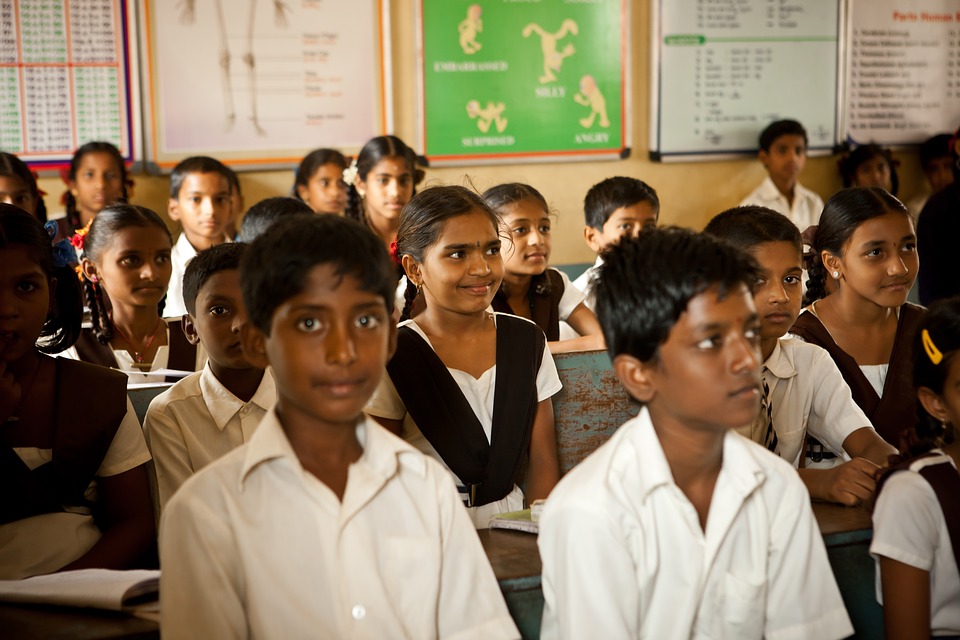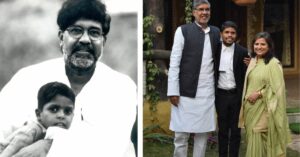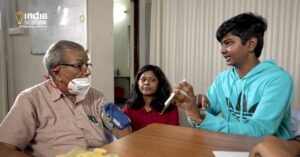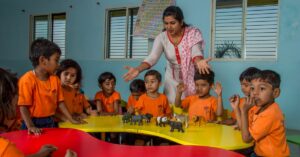Students in Rural Rajasthan Are Being Educated On Important Social Issues. On The Phone!
A charity is using audio stories accessed through mobile phones to educate boys on gender equality and social issues in rural Rajasthan. Here's how!

A Delhi-based charity is using audio stories accessed through mobile phones to educate boys on gender equality and social issues in rural Rajasthan.
Mobile phones are being used to promote inclusion and tackle social problems, particularly amongst adolescent boys and young men, in the district of Bundi, Rajasthan.
The initiative, named Kishor Varta, was developed by Delhi-based charity Centre for Health and Social Justice (CHSJ) and allows users to access audio stories for free through their mobiles.
It hopes to tackle two of the district’s largest problems – gender gap in youth literacy rates and high numbers of domestic and sexual abuse cases.

A pilot test of Kishor Varta was implemented with adolescents across 30 schools in Bundi by Manjari Sansthan, a registered NGO working in Rajasthan. The initiative has been backed by the local government.
Nowadays, mobile phones are widely used in rural India with most homes owning a least one handset. The charity is hoping to show how mobiles can be used to help the people living there through their initiative.
You may also like: Now You Too Can Teach Hundreds of Rural Students From Your Living Room! Find Out How.
The Problem
Bundi has been identified as having distinct socio-cultural issues, especially amongst its adolescent boys and young men, including lower literacy rates in comparison to adolescent girls and high numbers of domestic and sexual abuse cases.
Child marriages have also been cited as a community problem in the area and across the state, with the median age for girls at 15, and boys at 19; lower than the country’s legal age for marriage.
The Initiative
Using Kishor Varta, Hindi for ‘Discussions for Adolescents’, users can call a toll-free number that allows them to listen to a recording of information on issues affecting adolescents, including gender equality, body literacy, health, delaying marriage age, etc, in the form of audio stories. Volunteers are on hand to support the adolescents in using the service.
The stories, available in both Hindi and Marathi, follow the lives of four main characters, allowing the users to connect with the key issues being discussed through their experiences. After listening to each character’s life story, users are prompted to solve the character’s problems and choose their future course of action.
Users can also give feedback and ask questions, which are answered via SMS to the users’ phone.
The initiative has been developed with the intention that adolescents, who may be too embarrassed to ask questions otherwise, will not only receive answers themselves but will go on to share this information with their peers, thus widening the scope of information disseminated. This hopes to promote a new set of values amongst adolescent boys, leading to a different, more positive course of action, resulting in the adoption of an improved ‘norm’ over time.
The Impact
After it’s initial pilot run in 2015, the toll-free number received around 50,000 calls within 5 months, including 16,000 in a single month. Of these calls 6,000 are said to have led to “deeper engagement through responses, feedbacks and audio messages.” Teachers of the schools reported back to the charity that the stories were a very popular means of providing information and that their students were regularly demanding more information, in particular body literacy, health, reproductive and sexual health. The programme is now part of the standard school curriculum, having been integrated as a monthly class.
Due to the positive response of the pilot runs, the charity hopes to implement the initiative again soon, this time reaching out to even more schools and young-people centred institutions.
To know more about this initiative by the Centre for Health and Social Justice, click here.
Like this story? Or have something to share? Write to us: [email protected], or connect with us on Facebook and Twitter.
NEW: Click here to get positive news on WhatsApp!
This story made me
- 97
- 121
- 89
- 167
Tell Us More
We bring stories straight from the heart of India, to inspire millions and create a wave of impact. Our positive movement is growing bigger everyday, and we would love for you to join it.
Please contribute whatever you can, every little penny helps our team in bringing you more stories that support dreams and spread hope.



















